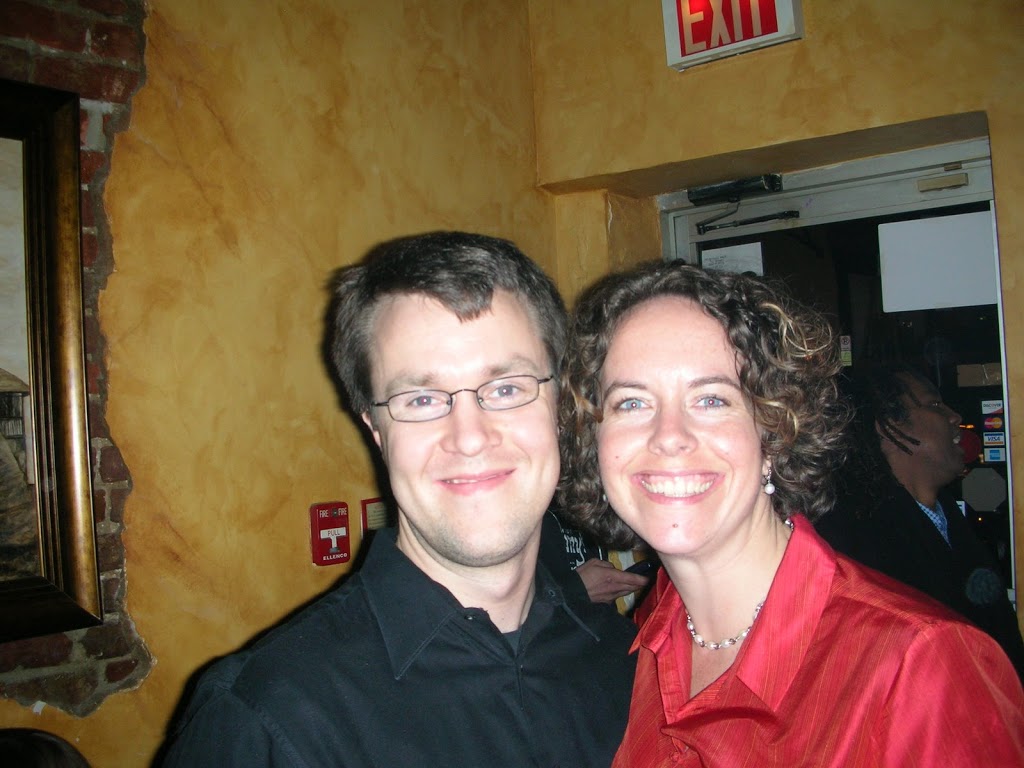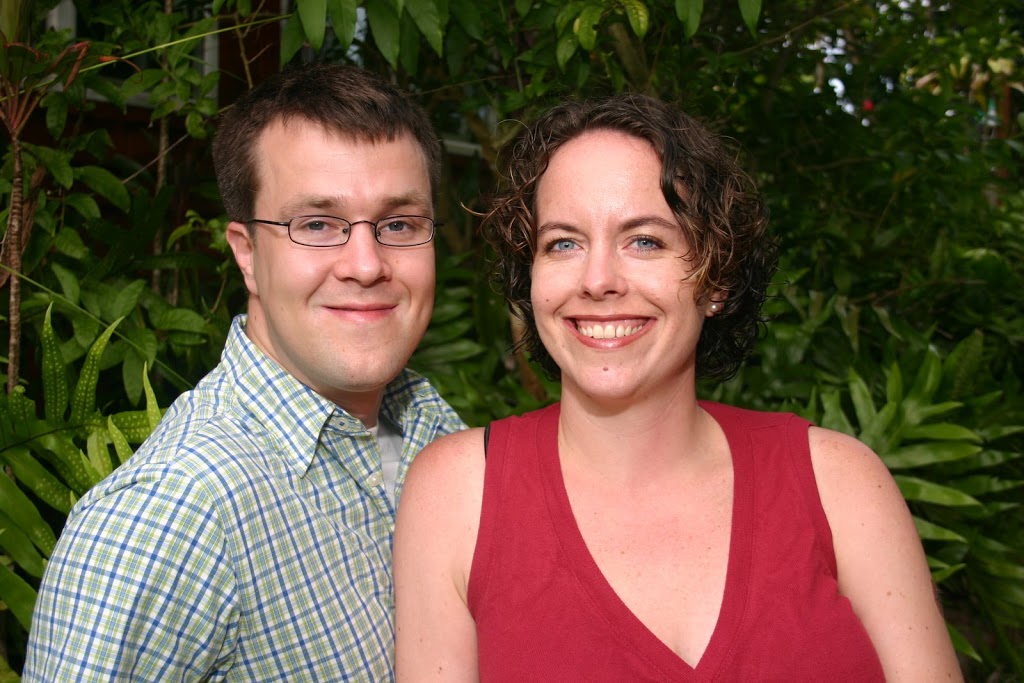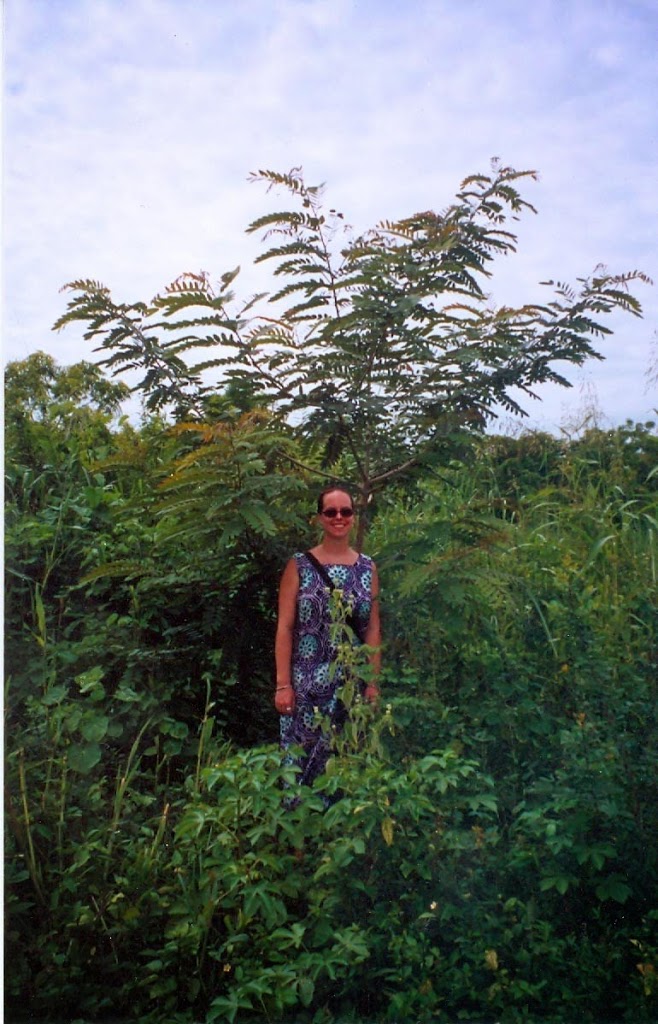My early money stories are certainly important, but I also feel that those money stories that we live every day and cycle through repeatedly are just as important to break free from as are those that influenced us earlier in life. These are the ones that show up on a regular basis and prevent us from getting what we want out of life.
- To put things into context, James and my relationship hasn’t exactly had a conventional track. The quick chronology is that we first dated 22 years ago, we moved in together 10 years ago, were married 8 years ago, and had our first child one week ago.
- This meant that when we first moved in together we had a long history in many ways, but were certainly learning each other as we went along. We dove into the deep end with our finances right off the bat.
- After reconnecting, not having seen each other in three years, the spark was still there and I took the plunge and moved across the country from Portland, OR to Washington, DC. It definitely took a financial leap of faith to go, but I felt it would work out. I had lost my job in Portland, so in that way it was easier to go. I sold nearly everything I owned, on the then new Craigslist, and shipped only a few boxes via greyhound. It was a shedding of my material possessions, but given my nomadic ways this came easier for me than it might have others. It also gave me some much needed cash.
- Particularly having lost my job, I was mounting up credit card debt and knew that I needed to get out fast. I had faith that I would be able to do so, but I can’t say it was easy. I managed to start my first job in Washington 5 weeks after moving here, working several weeks of temp work just to make sure I was able to stay afloat.
- At the same time as landing my job, I also put a plan in place to pay off my $13k in credit card debt. I researched and found the best card with 0% interest and no transfer fees to consolidate everything and pay it off as quickly as possible. I managed to do so in about seven months, even though I was only making $40k a year.
- James was very supportive about me paying off my credit card debt. Knowing him as I do now, I realize this was a huge show of love and faith in me. I think this was in part his having had credit card debt as well and having already turned this around and started to move towards better financial management. I do recall feeling a bit like a potential liability and not wanting that to be the case. I very much wanted to maintain my financial independence that I had had since college.
- James and I developed a household budget, though still kept things separate. We each paid a percentage of the rent 60/40, with James earning more at that time. James paid for going out together, since he enjoys paying the bill, and I paid for groceries to make it easier to shop and buy what I wanted (James was used to a bachelor’s diet).
- I realize that there are lots of early money dialogues that we had in those early days that still perpetuate. One of those comes around household purchases. James essentially feels that no household items are essential. I realized the strength of this conviction when I bought dishes for our place. I believe he had something like a plate and a bowl, which clearly wasn’t enough for us. Rather than buy a huge set of dishware, I picked a nice classic red German plate and bought four dinner plates, four cereal bowls, and four salad plates. James felt this purchase was excessive and unnecessary. We still have the same set today, now with six plates. I’m of the mind of buying something that you love once and then sticking with it. I still today have to manage whether or not (or to what degree) James will find a basic household purchase in some way unnecessary. This definitely helps in our minimalistic and small home, but also adds stress where it doesn’t necessarily need to be. I am better about delaying or thinking very carefully about how much I want/need something before I purchase, so I suppose I have James to thank for that in part.
- Around gift giving, James is also always very generous with giving gifts, particularly jewelry. I think during this first period that I write of he purchased me no less than 7 or 8 pieces of fine jewelry. My grandmother taught me never to say no to jewelry (or you’ll never get it again) and I’m ever grateful for James’ generosity. I do recall buying him a watch for our second Valentine’s Day, after I’d paid of my credit card debt, and he absolutely refused this gift. It was something like $150, when the ring he bought me was more than that, but he was adamant that it was unnecessary. So while will only by me jewelry, he pretty much only accepts clothes or money related gifts from my side to him. I suppose we all have our preferences.
- Meanwhile, we were working selling James first studio apartment within the first months of living together. It was a coop, and thus couldn’t easily be rented, so we put the studio up for sale. The market was climbing at that point, in 2004, and James sold the place for $130k after having bought it in 2001 for $40k.
- James had also bought his first studio rental a few months before I moved to DC, so he was itching for more real estate. I didn’t have the funds to contribute, but was eager to work on something together. James was interested in something in the ghetto. We did many tours of places in areas of DC that I might never have had the chance to go otherwise. In the end we settled on a place that was in a transitional neighborhood, but still close enough for us to walk to. This made a huge difference in terms of improving the place and selling it.
- Six months after I moved to Washington we bought a three unit townhouse at 4th & O, NW, in the Shaw neighborhood. I recall thinking about it the night before we closed that we were biting off a lot, but could also make a big difference in getting ahead. We spent nearly every night and weekend there working on it with sweat equity and some work with contractors. We sold the place six months later for about $70k more than we bought it for, but with expenses we probably got more out of the experience than anything else.
- By that fall I had paid off my credit cards and just kept shoveling any extra funds towards saving for our first placed together. We had a big thermometer tracker on our bedroom door and tracked every penny that went into saving. We both did research studies and random things to make more cash to sock away. It felt like we were really on track and was great to work together towards a goal. Luckily this is still the case today and we just put up our first savings thermometer since then today.
- We got engaged that fall in Hawaii, but decided right off the bat that we wanted a longer engagement (18 months) so we could buy our first place in six months and then save to pay for our wedding and honeymoon.
- During our engagement we had many discussions about finances. Like my sister, I also felt that James essentially forgave the fact that I came from a lower income family and had faith in me that I had already set myself on another track.
- A prenuptial agreement was also something that we did and many others avoid. I read a quick book, What To Do Before “I do”, that was very helpful in considering what was important to protect yourself. We are happily married nearly eight years later, but I am glad that we have the agreement in place.
- Just before we were married we started a finance blog, DINKs Finance, or Dual Income No Kids. I had never been on a blog before, but it felt like we had a story to tell around money. I was very much at the learning phases of investments, but felt that how you dealt with finances as a couple makes all the difference in both your relationship and your finances.
Miel



